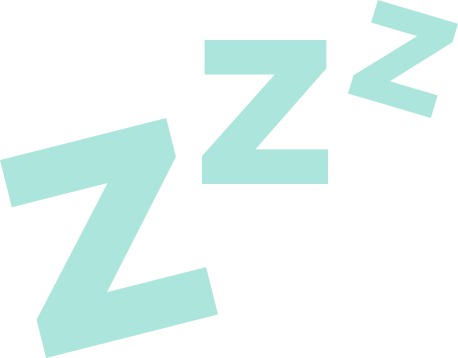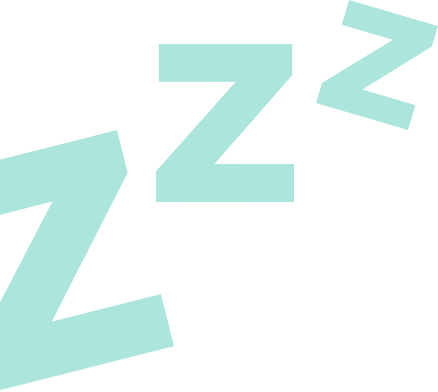How to navigate the 4 month sleep regression
What is the 4 month sleep regression and how can we help our little ones through it? Sleep expert Tori has all the answers for us, and you can find out more about her at the end of this article.
Has your baby gone from being a reasonably good sleeper, able to self-settle, link those sleep cycles and happily go down for day time naps, to the opposite?
Have they hit 4 months and everything has changed - frequent night waking, fussy nap times, refusing to go down? Then you are absolutely not alone. But what happens to babies at 4 months for their sleep to change so drastically? Here is everything you need to know about the 4 month sleep regression.
What happens at 4 months?
For the first 3 to 4 months babies can usually drift off to sleep and link their sleep cycles relatively easily and we as parents probably won't really be aware of the length of their sleep cycles. When they reach circa 4 months (it usually happens between 3 and 5 months) babies go through a huge developmental leap and their sleep is one of the things affected.
They start to fully wake in-between their sleep cycles and sleep becomes a very conscious thing for them. They start to become more aware of their surroundings and how they fall asleep. If they need something from us to get to sleep that is what they will be looking for when they wake from a sleep cycle.
Unlike other sleep regressions, the 4 month sleep regression is a permanent change to our little ones' sleep.
What is a Sleep Cycle:
Sleep cycles are the different stages your baby will go through when they are asleep. Babies sleep cycles at this age tend to be between 30 to 50 mins long during the day and around 2 hours at night.
There are 4 stages:
- Falling asleep - this could be popping them in their sleep space and they drift off independently (often known as self - settling), or being fed to sleep, rocked to sleep, held to sleep etc.
- Active sleep/REM - this is when your little one may be shuffling around, eyes may flicker, they may even make a few noises and you may question if they are really asleep.
- Deep sleep - at this stage their breathing will steady, they will be very still and even if the dog starts barking or your toddler starts playing right by them they will not stir.
- Transition phase - this is when your baby will wake through their sleep cycle, they may have a little cry, babble, move around a bit and then (ideally) get themselves back to sleep - this is known as linking sleep cycles. If they can’t fall asleep independently then this is when they will be looking for whatever it is they need to get themselves back to sleep.
What are the signs for the 4 month sleep regression:
For some babies it will be really obvious when the regression hits, for others it will be more subtle and parents may not notice at all.
The most common signs are:
- Shorter Naps - they usually start doing only one sleep cycle so around 30 to 50 mins
- Fighting Sleep - they may start to find it harder to settle to sleep and the way you would usually settle them no longer has the desired effect.
- Frequent Night Wakings - It is totally normal for 4 month olds to still need a night feed, but if you have gone from one or two night wakings for a feed to them waking every 2 hours then it can be a sign they have hit the regression.
How Can We Help?
There are 4 main things we can look at when helping our little one through the 4 month sleep regression:
Environment:
Look at the environment that your baby is being put to sleep in. Our aim is for it to be dark as this will help their body produce the sleep hormone melatonin, cool it is recommended that our little ones sleep in temperatures of around 19 degrees C, using consistent white noise, this can be helpful for blocking out any background noise - make sure it's on for the whole nap/night.
Correct Awake Windows:
Awake windows are the length of time your baby can be awake for between naps/bedtime, I have a free download on this - Understanding Awake Windows. They can truly be your best friend when it comes to infant sleep!
Having the correct, age-appropriate awake window ensures your little one is going to sleep tired, and you are avoiding them being under or overtired. This usually helps them fall asleep independently, sleep for a good chunk of time, and encourages them to link their sleep cycles. At 4 months the average awake window is between 1hr 45 min to 2 hours.
Day time naps: Day time naps play a massive part in your baby settling well and sleeping well at night by preventing them from becoming overtired and overstimulated. It may be time to look at gentle nap routines for your little one.
Sleep associations: We all wake up during our sleep cycles when we transition between deep sleep into light sleep, but as adults we tend not to remember it. Babies, on the other hand, may wake up fully. If your little one is used to being, for example, rocked or fed to sleep, then they are going to need the same thing done to get them back to sleep every time they wake up. There is ABSOLUTELY nothing wrong with any of these if it is working for you, if it isn’t and you want to encourage your baby to fall asleep without needing something from you then it may be time to work on independent sleep.
Sleep coaching: Some babies need a little more help to get them back to being solid sleepers. This is where you can use a gentle, consistent sleep coaching method that feels right for you and your baby.
Remember, you matter too, and if you have been hit hard by this change in your babies sleep pattern then make sure you ask for help. Lower your expectations on what you will achieve in a day when you have had 2 hours sleep, listen to your mind and body, and get some rest whenever you can. Remember to eat, stay hydrated, get some fresh air and ask for help!
If you feel you need guidance with the 4 month sleep regression or any other early years sleep then please get in touch - tori@thisparentcan.com. Have a look at my 1:1 support packages and phone calls, my Sleep Saviour School Online Course , Age Appropriate Downloadable Routines.
About Tori:
Tori runs This Parent Can. As a mum of three and qualified sleep consultant, maternity practitioner and baby massage instructor she knows a thing or two about ditching sleep deprivation and reclaiming her evenings!
"I remember when I had my first child and I felt as prepared as I could be for labour, birth and taking my bundle of joy home. What I wasn’t prepared for was weeks upon weeks of interrupted sleep, constant exhaustion and frustration that stole my ‘couple time’ away from me.
That’s when I decided I needed to make a change. Today I help struggling parents to do the same - to make small, incremental changes that put them back in the driving seat of their households' sleep cycles!"
For more information on her services head to www.thisparentcan.com and follow on Instagram @thisparentcan for more free hints and tips.



